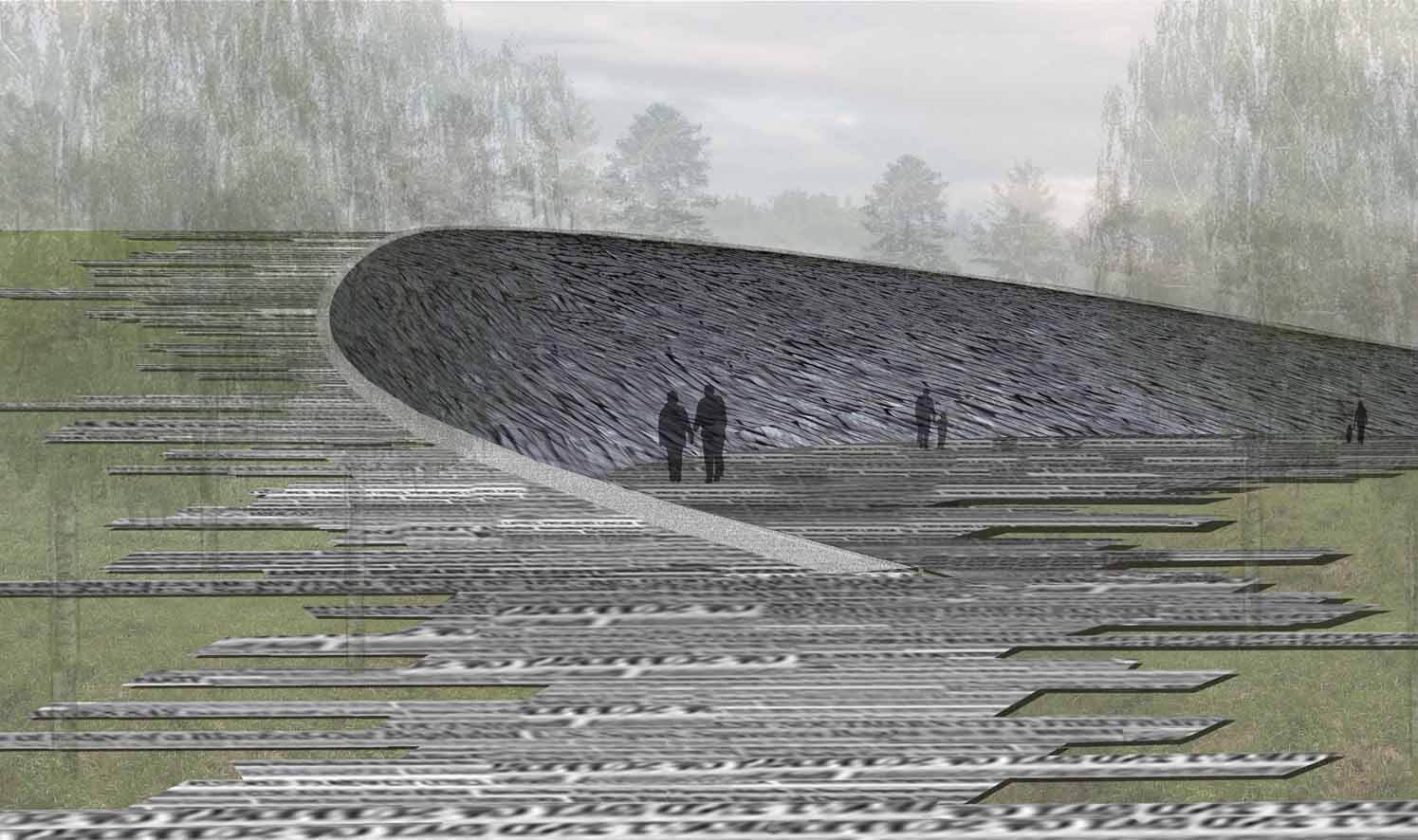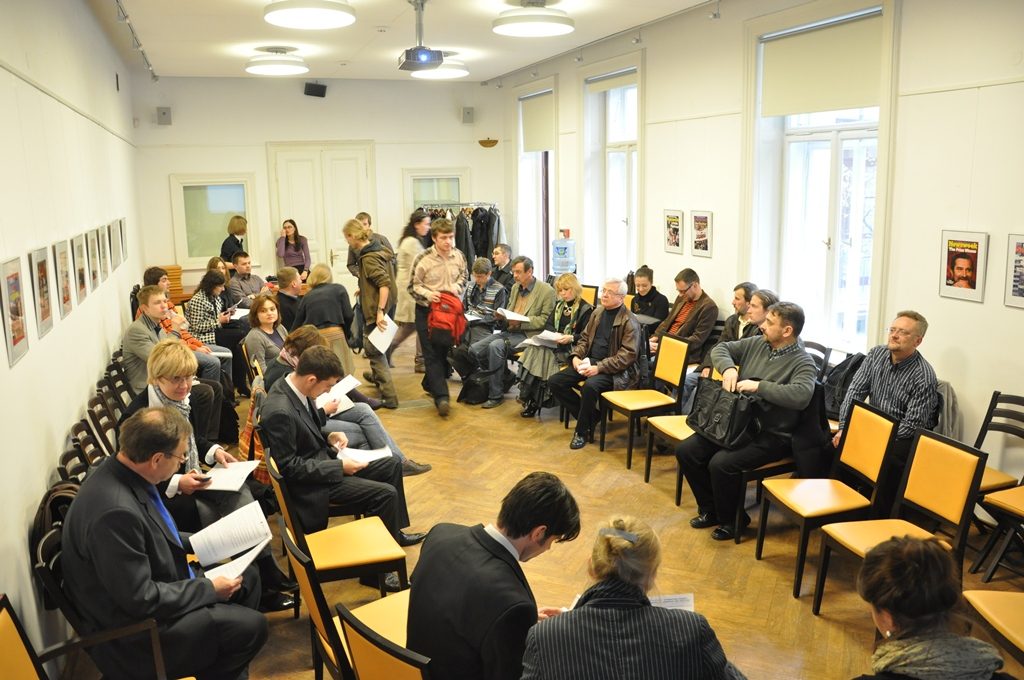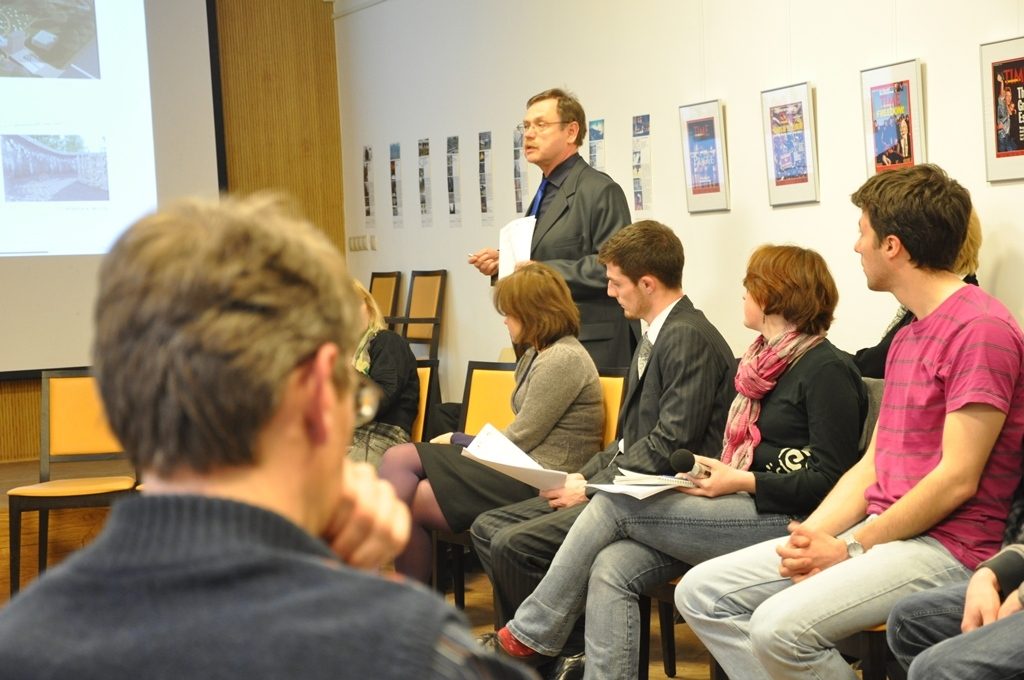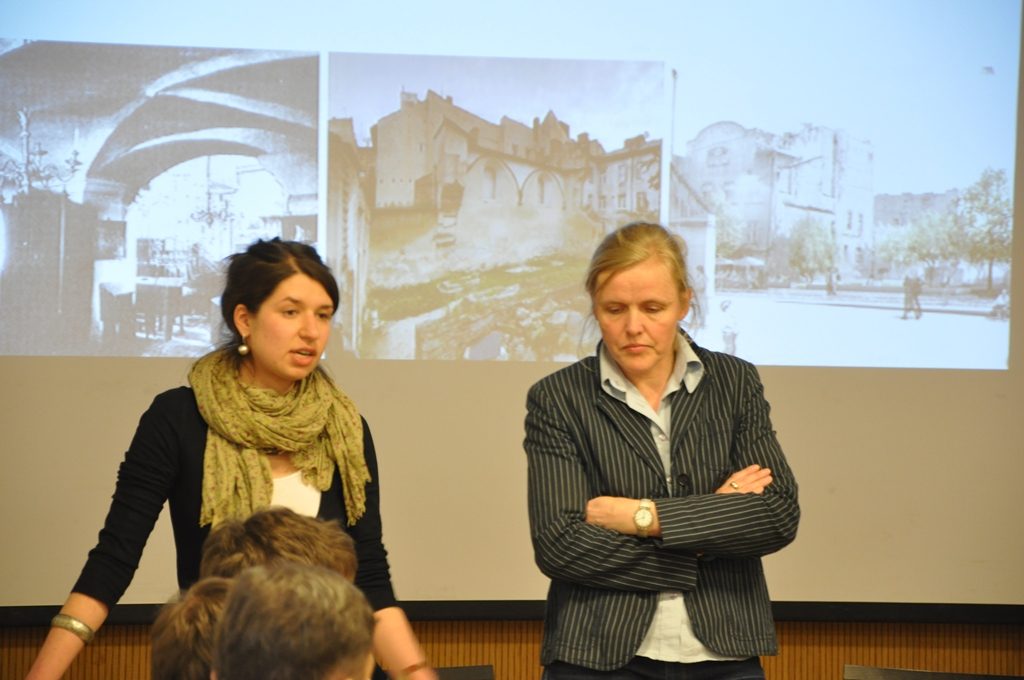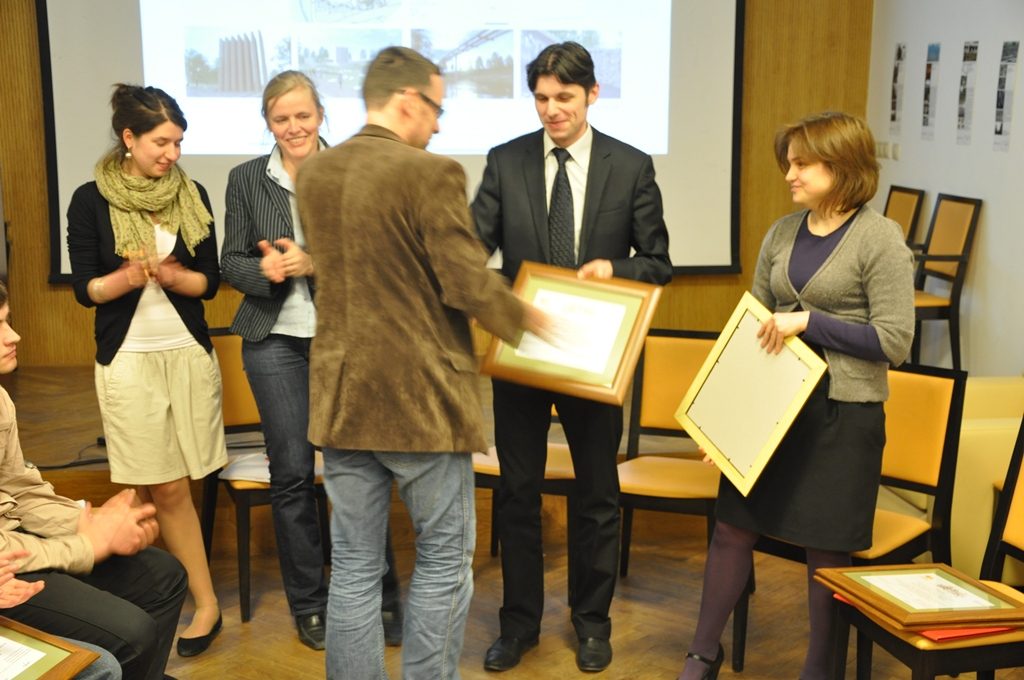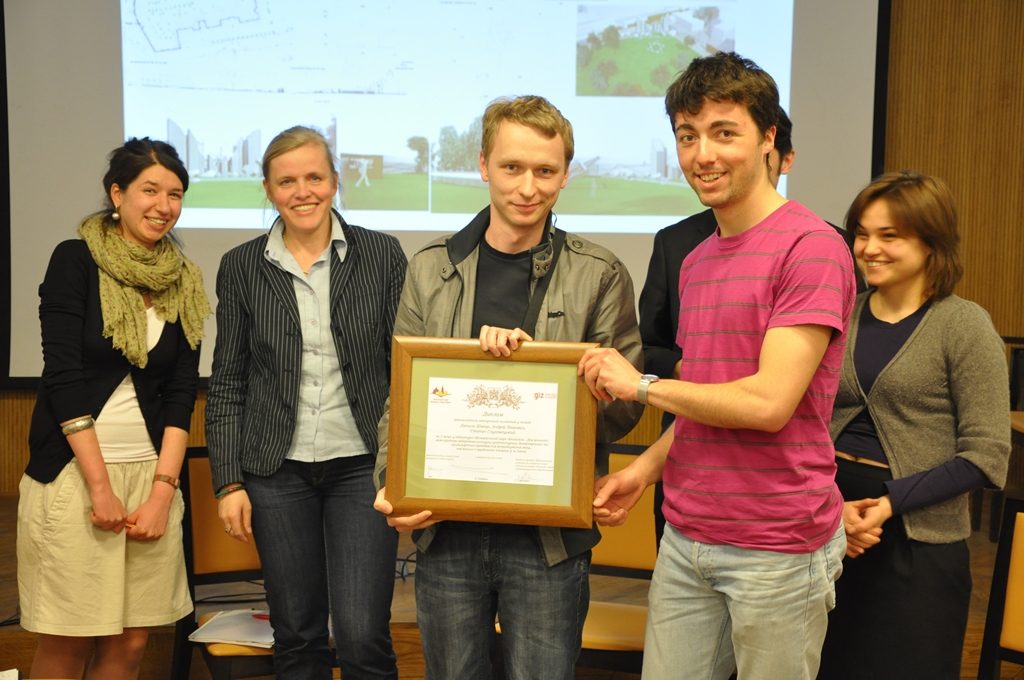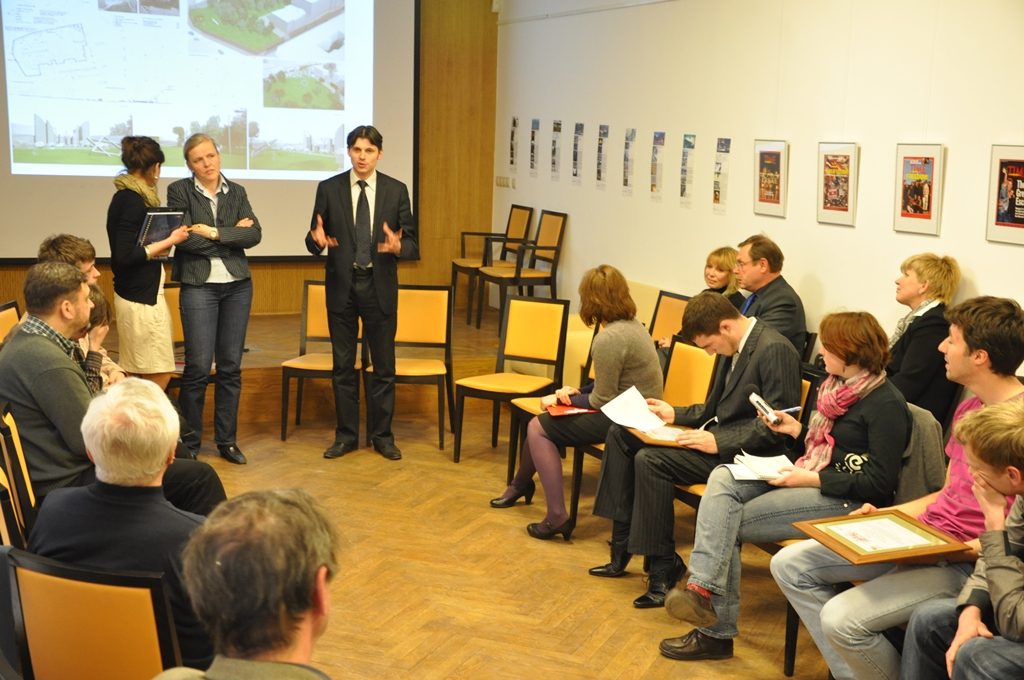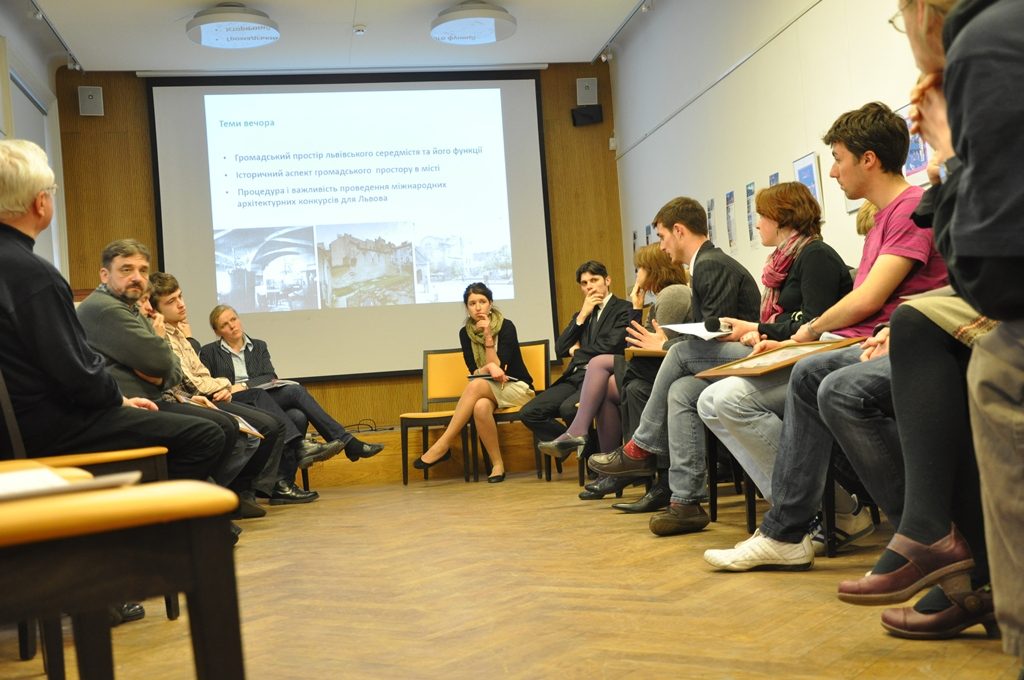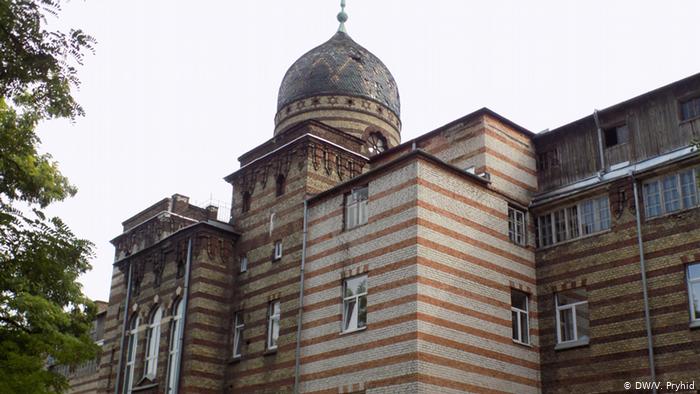Public places and Lviv's historic legacy
April 19, 2011
Center for Urban History, Lviv
Representatives from city government gathered with architects and historians to give their perspectives on how to develop public spaces that have a complex historic past. Contest winners and members of the recent International Contest for Developing Spaces Connected with Jewish History in Lviv jury also participated in the discussion; jury members explained their decision-making process and, contestants described their experiences in the international contest.
Public places feature prominently as criteria for determining the quality of life in a city. Historic diversity is a common feature to all of Lviv’s public places. To embrace this diversity the city government and architects must pay special attention on how they developing these spaces.
The international contest for planning three publics paces which,to some degree, are connected to Jewish history served as the foundation for this discussion. The contest was held from September to December of 2010. It was conducted by the Lviv City Administration with support from the Center for Urban History of East-Central Europe and the GIZ project: Municipal Development and Renewal of Historic Sections of Lviv.
The three separate contests received 70 entries from 14 countries. On December 23, 2010 the international jury announced the winners. The Synagogue Square contest winners were a team of architects from Germany; an entry from Israel won the Besojlem Memorial Park contest; and a project submitted by a group of architects from California, USA was selected as the winner for the Yanivsky Concentration Camp Memorial competition.
The submitted entries were exhibited in the Palace of Culture in December 2010; starting on 16 March they were exhibited for public viewing.
